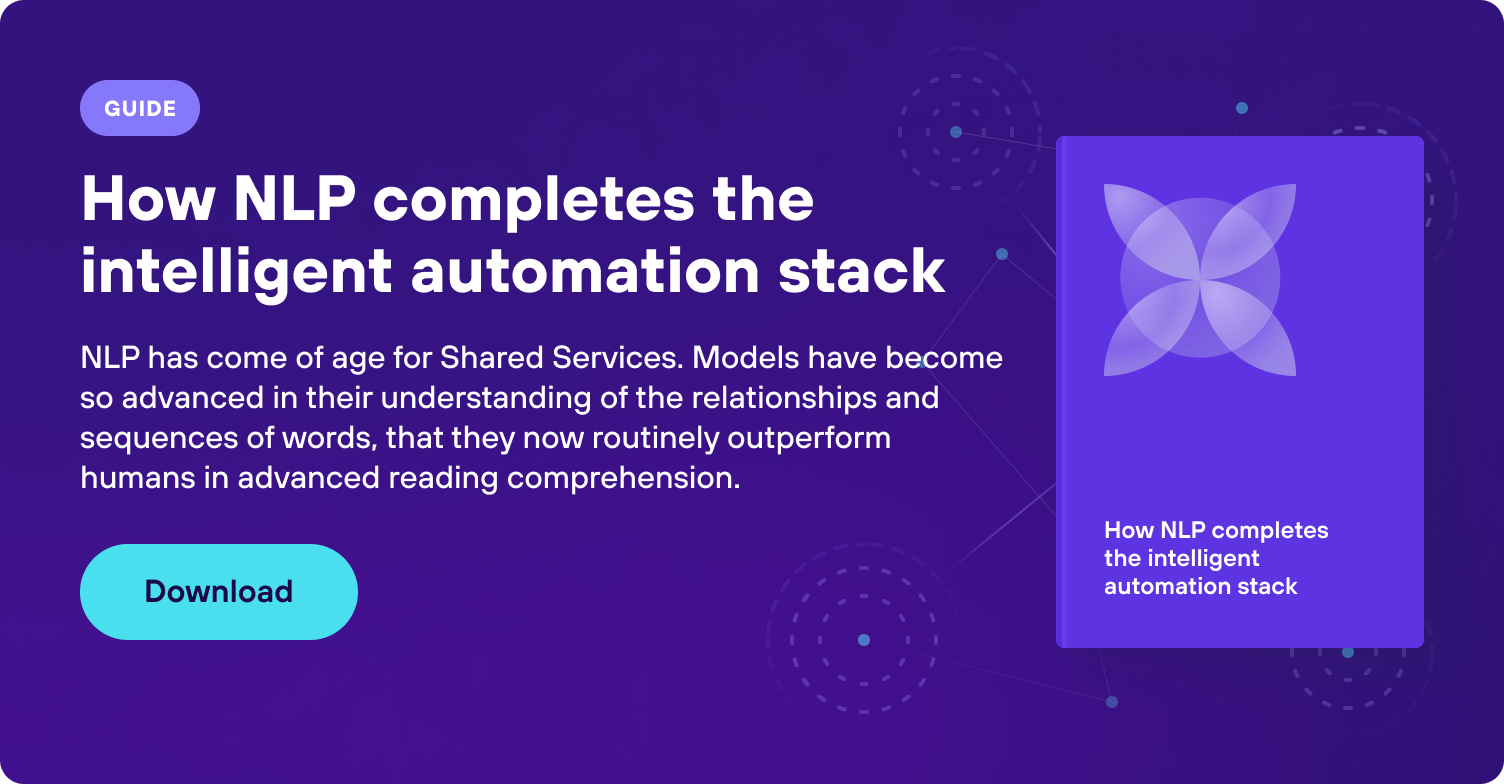We’re unlikely to ever see the completely ‘zero ops’ enterprise, but it still provides a useful goal for Operations and transformation leaders to strive towards. Conversational Data Intelligence is key for understanding and automating the manual, communications-based processes that sap the time and resources of ops teams.
Is Zero Operations a destination, or is it just a mirage down an endless road? Zero Operations - the idea of a business environment that requires zero hands-on operational work - has been treated as a north star by many operations and transformation leaders, and for good reason.
Like any pole star, Zero Operations is best treated as an aspiration - a guiding light rather than an end state. No business can or will survive without its Operations people. We will always need teams of professionals to supervise, create, talk to customers and innovate.
Yet, as a goal to aim for, Zero Operations is vital. The automation of manual processes and workflows to remove repetitive and mundane tasks will deliver much-needed efficiencies, transform operations and contribute greatly to competitive advantage. Transformation leaders can more easily realise their cost and efficiency targets, while Operations finds more ways to boost productivity and free up teams for more important work.
We have our goal - the automation of repetitive and low-value manual tasks. The question is, how do we get there?
Conversational Data Intelligence: insight and integration
The first step is achieving complete process insight and visibility. Coordination is often the greatest challenge in Operations. To plan and resource effectively, Operations leaders need to know what is driving work and which requests are taking up their teams’ time. This insight is equally vital for driving successful change and improvement programmes.
Communications channels - like email, service desks and case management apps - are integral to the work of ops teams. But beyond basic metrics such as case volumes, there is little visibility over the content and nature of this work. What issues are driving requests? What inefficiencies are causing process breakdown and delays, and why?
Businesses struggle to extract this information because it’s expressed in unstructured natural language. Unlike structured, formal language that adheres to a set of rules - such as form text - which can be parsed and analysed by machines, the informal, conversational language of humans can’t be analysed by traditional analytics tools.
The messages that people send each other - whether through chat or email - are filled with valuable insights. But, until now, only humans have been able to reliably process this information. Leaders have had few options but to source this information manually through regular team standups, but this is time-consuming and too slow to address the problems facing the business right now.
Conversational Data Intelligence provides a solution. Combining natural language processing (NLP) with machine learning, Conversational Data Intelligence platforms provide complete visibility into the unstructured workflows at the centre of all ops work. They use the latest advances in NLP to transform communications into structured, machine-readable data for analysis.
Conversational Data Intelligence gives operations and transformation leaders unprecedented insight into the work of their teams, They have the capabilities to understand and analyse all inbound work and every communications channel in real time. This increased visibility allows change and operations leaders to make better data-driven decisions, eliminating inefficiency in the ops function through better planning, resourcing and change programmes.
Automation: enabling continuous operations
More importantly, however, increased insight and data is necessary for more extensive process automation.
Automation is the kernel of Zero Operations. Half of help desk production tickets and requests are routine and minor in complexity. Many of these tasks have already been taken out of workflow thanks to self-service portals. Leading intelligent automation leaders are also leveraging virtual assistants and RPA bots to manage and automate the most basic requests.
However, current approaches to automation have typically overlooked comms-based workflows, despite these taking up so much operational resource. For example, email costs businesses between $5,000 and £10,000 per employee each year depending on the size of the company. The average employee sends or receives 126 emails a day, with 40% of their time spent in Outlook. Email alone represents a huge source of potential efficiencies and automation opportunities. But the majority of automation tools require structured data in order to execute their processes.
Fortunately, Conversational Data Intelligence closes this gap. By turning unstructured natural language into structured data, Conversational Data Intelligence opens up entirely new frontiers for automation across Operations. Conversational Data Intelligence provides easy integrations with other automation tools, including RPA. Through these connectors, the structured data generated can be fed into intelligent, automated workflows for straight-through processing.
NLP is advancing all the time. Thanks to recent game-changing innovations, the latest NLP models now routinely outperform humans in their ability to comprehend and understand natural language. This makes the technology ideally placed to process the repetitive, transactional requests that take up so much of employees’ time. This includes email triage, the elimination of bad contacts, and requesting missing information from clients.
These automations enable Operations to complete more work in less time and with fewer errors. At the same time, the use of Conversational Data Intelligence for automation frees up agent time for the most challenging and complex tasks. In this way, the automation of comms-based work is central to the Zero Operations vision. It eliminates routine and monotonous work for ops teams, while improving efficiency through straight-through processing.
The intelligent autonomous enterprise
We may never see the Zero Operations enterprise. However, we are rapidly entering the era of the intelligent autonomous enterprise. Here, the resource-intensive processes that run a business have been automated for maximum efficiency. This empowers Operations to focus its energies on the most complex issues and value-adding tasks.






